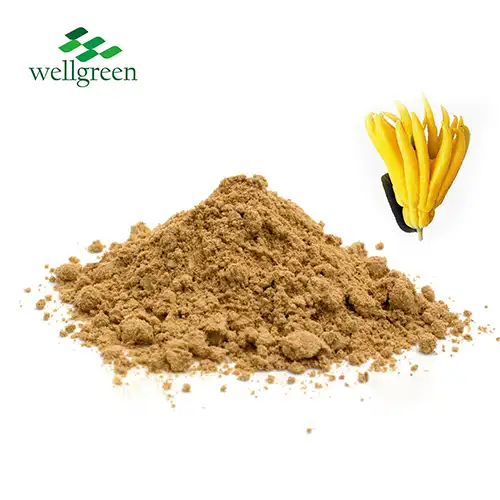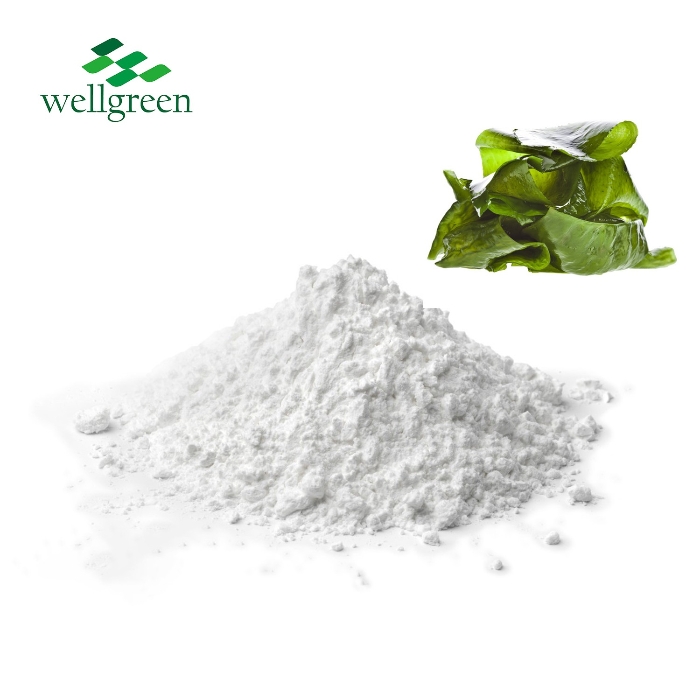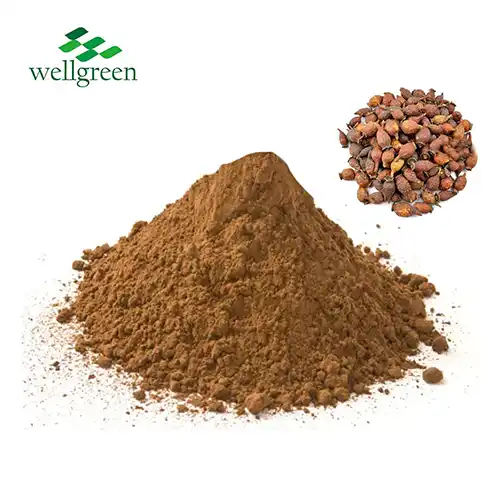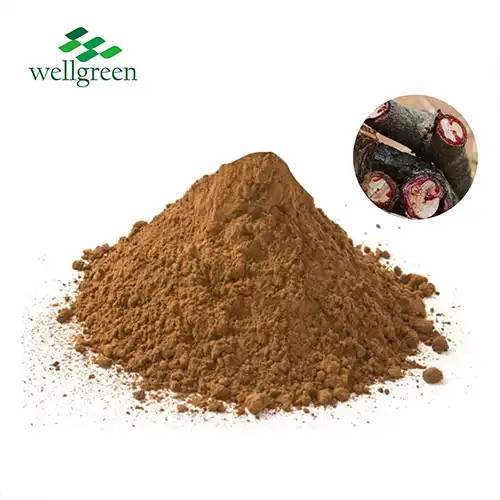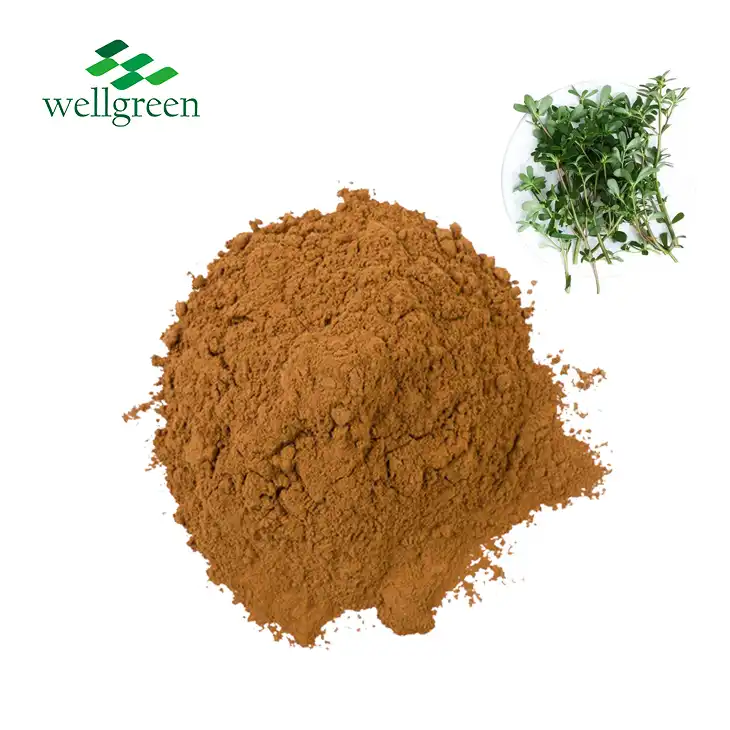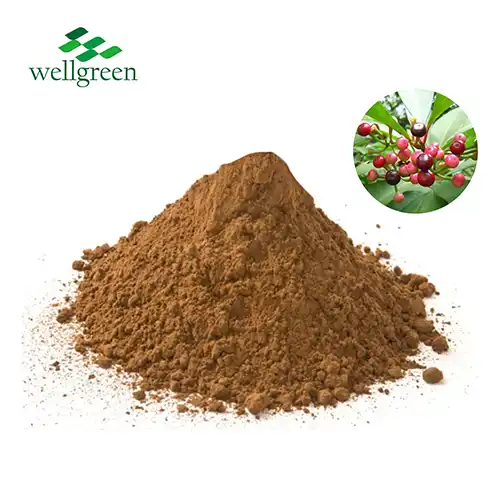Is Kava Extract Safe? Side Effects and Precautions to Know
2025-10-16 14:08:12
Kava extract powder, derived from the Piper methysticum plant, has gained popularity for its potential calming and anxiolytic effects. However, concerns about its safety have emerged in recent years. While kava extract may offer benefits when used responsibly, it's crucial to understand the potential risks and follow proper guidelines. This article explores the safety profile of kava extract, including possible side effects, regulatory status, and best practices for use. By examining current research and expert recommendations, we aim to provide a comprehensive overview to help consumers and manufacturers make informed decisions about kava extract powder and related products like bulk kava extract powder and kavalactone powder.

Potential Risks: Liver Safety and Other Health Concerns
Liver-Related Risks
One of the primary concerns surrounding kava extract powder is its potential impact on liver health. Several case reports have linked kava consumption to liver damage, ranging from mild enzyme elevations to severe hepatotoxicity. While the exact mechanism remains unclear, some researchers suggest that certain compounds in kava may interact with liver enzymes or trigger immune-mediated reactions in susceptible individuals.
It's important to note that the incidence of liver problems appears to be rare, and many cases involved confounding factors such as pre-existing liver conditions or concurrent use of other medications. Nevertheless, the potential risk has led to increased scrutiny and caution in kava use.
Other Physiological Effects
Beyond liver concerns, kava extract powder may cause other side effects, particularly when consumed in large quantities or over extended periods. These can include:
- Gastrointestinal discomfort
- Headaches and dizziness
- Drowsiness and impaired motor function
- Skin reactions (kava dermopathy)
- Potential interactions with certain medications
Users of bulk kava extract powder or concentrated kavalactone powder should be especially mindful of dosage, as these forms may contain higher concentrations of active compounds.
Long-Term Usage Considerations
While short-term use of kava extract appears to be generally well-tolerated in healthy individuals, long-term effects are less understood. Some studies suggest that prolonged heavy use may lead to:
- Nutritional deficiencies
- Increased risk of liver enzyme abnormalities
- Potential psychological dependence
Further research is needed to fully elucidate the long-term safety profile of kava extract and its various preparations.
Regulatory Guidelines: Legal Status and Safety Recommendations
Global Regulatory Landscape
The regulatory status of kava extract powder varies significantly across different countries and regions. In some areas, kava products have faced restrictions or bans due to safety concerns, while others maintain more permissive policies. Here's an overview of the current regulatory landscape:
- United States: Kava is legally available as a dietary supplement, but the FDA has issued warnings about potential liver risks.
- European Union: Several EU countries have banned or restricted kava products, though regulations are not uniform across the bloc.
- Australia and New Zealand: After a period of restriction, both countries now allow certain forms of kava for personal use and limited commercial purposes.
- Pacific Island Nations: Kava remains an important cultural and economic product, with varying degrees of regulation on cultivation and export.
Manufacturers and suppliers of bulk kava extract powder and kavalactone powder must navigate these complex regulations to ensure compliance in different markets.
Safety Recommendations from Health Authorities
Various health organizations and regulatory bodies have issued guidelines regarding kava use. Common recommendations include:
- Limiting duration of use and adhering to suggested dosages
- Avoiding kava if you have liver problems or take medications that affect the liver
- Refraining from alcohol consumption while using kava products
- Consulting with a healthcare provider before using kava, especially if you have pre-existing health conditions
- Discontinuing use and seeking medical attention if signs of liver problems occur
These guidelines apply to all forms of kava, including kava extract powder and more concentrated preparations.
Industry Self-Regulation and Quality Initiatives
In response to safety concerns, some segments of the kava industry have implemented self-regulatory measures to enhance product safety and quality. These initiatives may include:
- Voluntary testing programs for contaminants and adulterants
- Adherence to good manufacturing practices (GMP) standards
- Development of industry-wide quality standards for kava products
- Transparent labeling practices, including clear dosage instructions and potential risk warnings
Consumers and businesses dealing with kava extract powder should look for suppliers who demonstrate commitment to these quality and safety measures.
Best Practices: Standardization, Dosage, and Quality Control
Standardization of Kava Products
Standardization is crucial for ensuring consistency and safety in kava extract powder and related products. Key aspects of standardization include:
- Kavalactone content: Standardizing the concentration of active compounds helps maintain consistent potency across batches.
- Chemotype identification: Different kava cultivars have varying chemical profiles, which can affect both efficacy and safety.
- Extraction methods: Standardized extraction processes help minimize variability and potential contamination.
Manufacturers of bulk kava extract powder and kavalactone powder should prioritize standardization to provide reliable products to consumers and downstream producers.
Dosage Guidelines and Administration
Proper dosing is essential for maximizing benefits while minimizing risks associated with kava extract use. While optimal dosages can vary based on individual factors and the specific product, general guidelines include:
- Starting with low doses and gradually increasing as needed
- Following manufacturer recommendations for specific products
- Limiting daily kavalactone intake to no more than 250 mg, unless under professional guidance
- Avoiding prolonged continuous use without breaks
Users should be aware that potency can vary significantly between different kava preparations, particularly when comparing traditional forms to concentrated extracts or kavalactone powder.

Quality Control Measures
Rigorous quality control is paramount in ensuring the safety and efficacy of kava extract products. Best practices for quality control include:
- Sourcing kava from reputable suppliers who follow sustainable and ethical harvesting practices
- Implementing comprehensive testing protocols for contaminants, adulterants, and microbial contamination
- Verifying the identity and purity of kava raw materials before processing
- Maintaining strict hygiene and safety standards throughout the manufacturing process
- Conducting regular stability testing to ensure product integrity over time
By adhering to these quality control measures, manufacturers can produce kava extract powder and related products that meet high standards of safety and efficacy.
Conclusion
The safety of kava extract powder remains a complex and evolving topic. While kava offers potential benefits, it also carries risks that require careful consideration. By understanding the potential hazards, following regulatory guidelines, and implementing best practices in standardization, dosage, and quality control, both consumers and manufacturers can approach kava use more responsibly. As research continues to shed light on kava's effects, staying informed and prioritizing safety will be crucial for anyone involved in the production, distribution, or use of kava extract products.
Contact Us
For high-quality kava extract powder, bulk kava extract powder, or kavalactone powder that meets stringent safety and quality standards, contact Xi'an Wellgreen. Our team of experts is committed to providing premium plant extracts and natural organic powders to meet your manufacturing needs. Reach out to us at wgt@allwellcn.com to learn more about our kava extract products and how we can support your business as a reliable supplier and manufacturer.
References
1. Teschke, R., & Lebot, V. (2021). Proposal for a Kava Quality Standardization Code. Phytomedicine, 81, 153436.
2. Sarris, J., et al. (2020). Kava for generalized anxiety disorder: A review of current evidence. Journal of Clinical Medicine, 9(6), 1766.
3. Savage, K. M., et al. (2018). Kava for the treatment of generalised anxiety disorder (K-GAD): study protocol for a randomised controlled trial. Trials, 19(1), 455.
4. Showman, A. F., et al. (2015). Contemporary Pacific and Western perspectives on `awa (Piper methysticum) toxicology. Fitoterapia, 100, 56-67.
5. Teschke, R., & Wolff, A. (2011). Regulatory causality evaluation methods applied in kava hepatotoxicity: Are they appropriate? Regulatory Toxicology and Pharmacology, 59(1), 1-7.
6. Sarris, J., et al. (2011). The Kava Anxiety Depression Spectrum Study (KADSS): a randomized, placebo-controlled crossover trial using an aqueous extract of Piper methysticum. Psychopharmacology, 219(2), 527-535.

